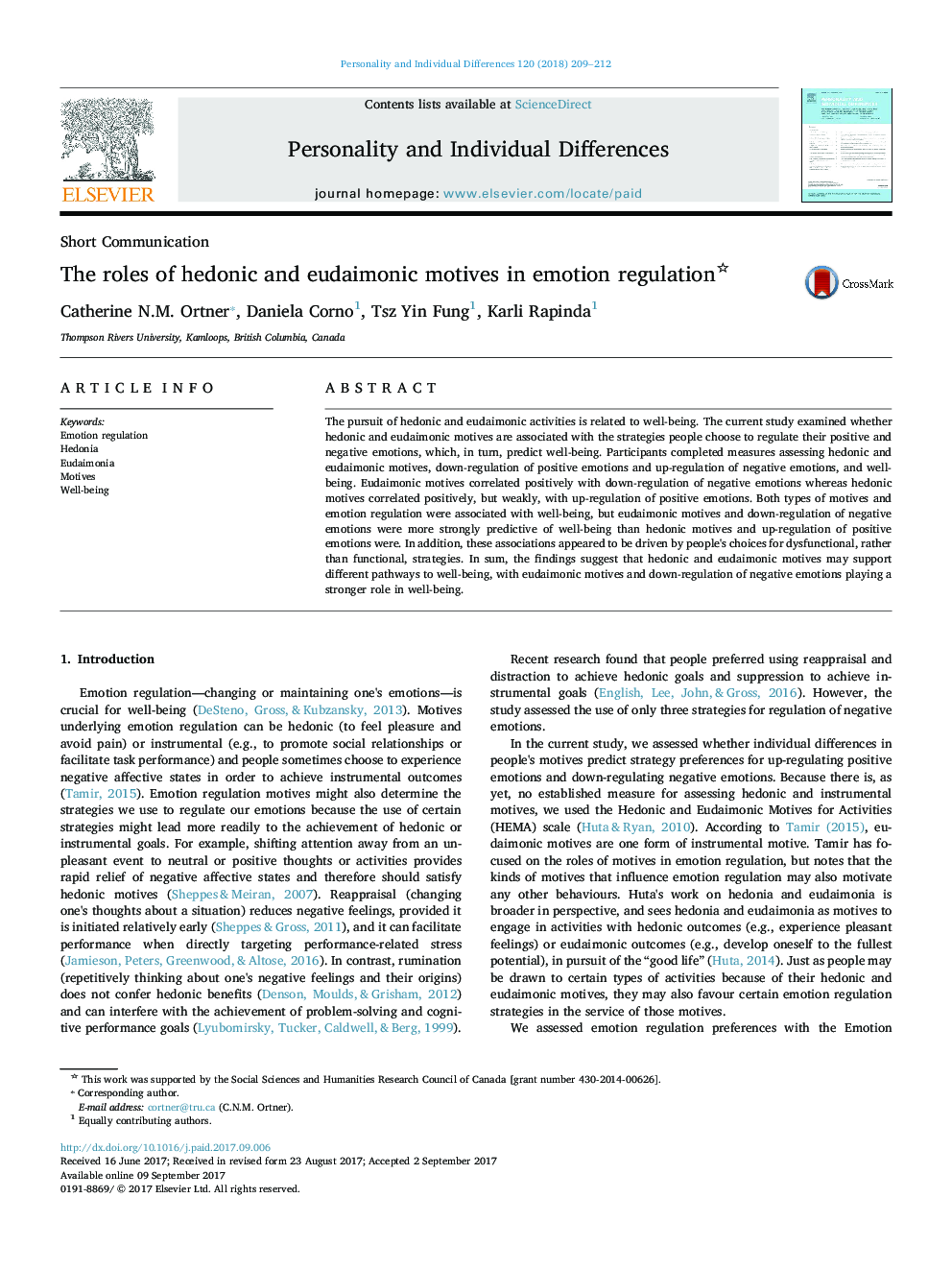| کد مقاله | کد نشریه | سال انتشار | مقاله انگلیسی | نسخه تمام متن |
|---|---|---|---|---|
| 5035542 | 1471998 | 2018 | 4 صفحه PDF | دانلود رایگان |
- Eudaimonic motives predicted functional down-regulation of negative emotions.
- Eudaimonic motives were associated with multiple measures of well-being.
- Hedonic motives more weakly predicted up-regulation of positive emotions.
- Hedonic and eudaimonic motives may support different pathways to well-being.
The pursuit of hedonic and eudaimonic activities is related to well-being. The current study examined whether hedonic and eudaimonic motives are associated with the strategies people choose to regulate their positive and negative emotions, which, in turn, predict well-being. Participants completed measures assessing hedonic and eudaimonic motives, down-regulation of positive emotions and up-regulation of negative emotions, and well-being. Eudaimonic motives correlated positively with down-regulation of negative emotions whereas hedonic motives correlated positively, but weakly, with up-regulation of positive emotions. Both types of motives and emotion regulation were associated with well-being, but eudaimonic motives and down-regulation of negative emotions were more strongly predictive of well-being than hedonic motives and up-regulation of positive emotions were. In addition, these associations appeared to be driven by people's choices for dysfunctional, rather than functional, strategies. In sum, the findings suggest that hedonic and eudaimonic motives may support different pathways to well-being, with eudaimonic motives and down-regulation of negative emotions playing a stronger role in well-being.
Journal: Personality and Individual Differences - Volume 120, 1 January 2018, Pages 209-212
